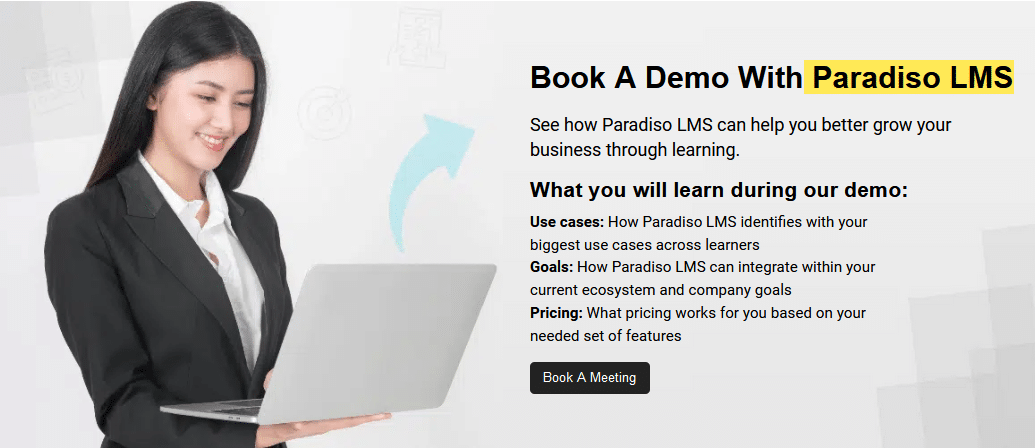Interactivity and Personalization
Live LMS Demo:
-Customization: Allows for a highly interactive session where you can request a deep dive into features relevant to your business.
-Immediate Feedback: Real-time Q&A sessions provide immediate clarification and deeper insights.
Recorded LMS Demo:
-Self-Paced Learning: You control the pace, revisiting complex topics as needed.
-Uniformity: It offers a consistent experience for every viewer, though it may lack the tailored approach of a live session.
Flexibility and Scheduling
Live LMS Demo:
-Scheduled Sessions: Requires setting up a meeting time, which might be challenging if you have a tight schedule or multiple stakeholders in different time zones.
-Real-Time Engagement: Offers the benefit of interactive engagement that can be more memorable and persuasive.
Recorded LMS Demo:
-On-Demand Access: Perfect for busy professionals who want to fit a demo into their schedule without commitment to a live session.
-Convenience: Allows multiple team members to view the demo at their convenience, ensuring everyone receives the same information.
Depth of Information
Live LMS Demo:
-Dynamic Depth: The depth of the session can be adjusted based on the audience’s needs. For example, if you’re interested in how Paradiso LMS integrates with existing HR systems, the presenter can dive deep into that feature.
-Adaptive Explanations: Presenters can elaborate on complex topics based on immediate audience reactions.
Recorded LMS Demo:
-Comprehensive Overview: Generally provides a well-rounded overview of features, often highlighting the most critical functionalities of the LMS.
-Static Content: May not delve into niche topics or specific questions that arise during the evaluation process.
Cost Considerations
Live LMS Demo:
-Resource Intensive: Requires dedicated time from both the presenter and the participants. This can be a consideration for organizations with limited resources.
Recorded LMS Demo:
-Resource Efficiency: Minimal time commitment from live staff, making it a cost-effective option for initial evaluations.



















